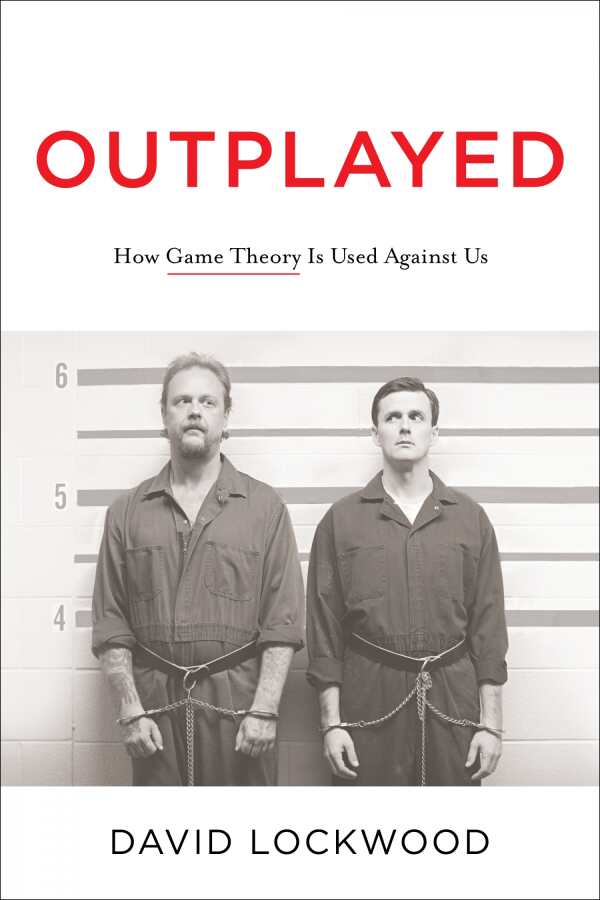Outplayed
How Game Theory Is Used Against Us
Outplayed is an entertaining, enlightening exploration of human decision-making, filtered through a lens of logic.
David Lockwood analyzes game theory as it applies to real life scenarios like war, sex, and online auctions in his book Outplayed.
Lockwood, who has been a Silicon Valley executive, lecturer at the Graduate School of Business at Stanford University, and advisor to the United States government, forgoes the complex mathematics at the heart of game theory to focus on its most effective uses in the contemporary world. While there are cursory references to games including poker, chess, and checkers, much more attention paid to high stakes interactions, like the nuclear standoff between the US and Russia.
Easy-to-understand concepts like the Prisoner’s Dilemma, in which two opponents must decide whether to cooperate or put their own interests first, are extrapolated to explain notions beyond their original bounds, as with the rules of mating and child-rearing. And other sections of the book detail the use of game theory in auctions, with fascinating ideas about why eBay’s system led to its popularity and dominance in the online auction market. Elections and voting methods get the game theory treatment as well, with analyses of the pros and cons of various systems. Even the biblical story of Adam and Eve is revisited through the lens of game theory, with tongue-in-cheek strategic suggestions about how God could have arranged the situation better.
The prose is accessible, intelligent, and full of interesting information. A careful and rewarding balance is struck by omitting the heavy math, while still acknowledging the innovative thinkers who formed the foundation of game theory. Brief biographies of John von Neumann, John Nash, Lewis Carroll, and other prominent figures are used to contextualize this aged field of study, with early examples from the likes of Sun Tzu and King Solomon.
The book argues that the value of game theory lies not just in maximizing benefits to isolated individuals on small scales, but rather in utilizing the techniques learned in order to improve the world as a whole. These conclusions are provocative but not always convincing, as with the argument that the threat of a nuclear winter requires nations to cease fighting at a certain point based on potential damage to humanity and the planet. Still, the book’s arguments are always interesting, and they are leavened by humor, as with an analysis of a couple battling over the remote control.
The book’s subtitle is misleading: the real world examples cited are not perfect expressions of applied game theory; suggestions for improvements are noted throughout, making the volume more of a optimistic guideline on how game theory might be used to improve the status quo than it is a warning. The book’s most intriguing lesson—that in a long view, over time, cooperation wins the day over simple self-interest—is also its most valuable one, with enormous potential ramifications for everyday life.
Outplayed is an entertaining, enlightening exploration of human decision-making, filtered through a lens of logic.
Reviewed by
Peter Dabbene
Disclosure: This article is not an endorsement, but a review. The publisher of this book provided free copies of the book and paid a small fee to have their book reviewed by a professional reviewer. Foreword Reviews and Clarion Reviews make no guarantee that the publisher will receive a positive review. Foreword Magazine, Inc. is disclosing this in accordance with the Federal Trade Commission’s 16 CFR, Part 255.

